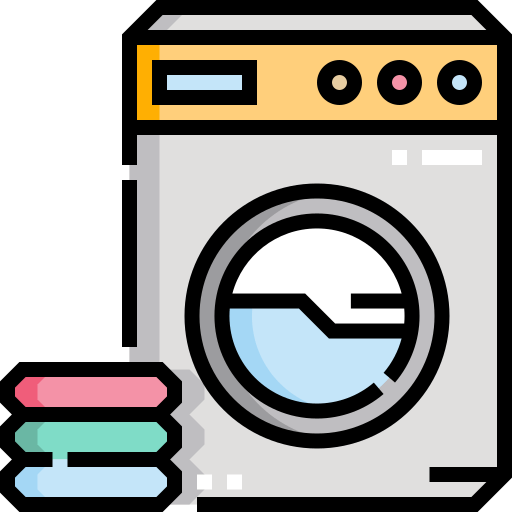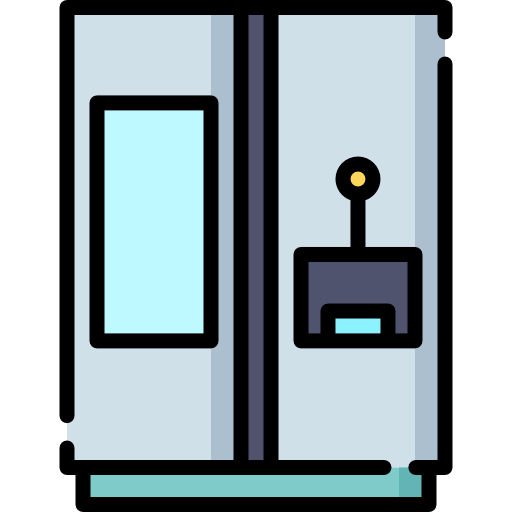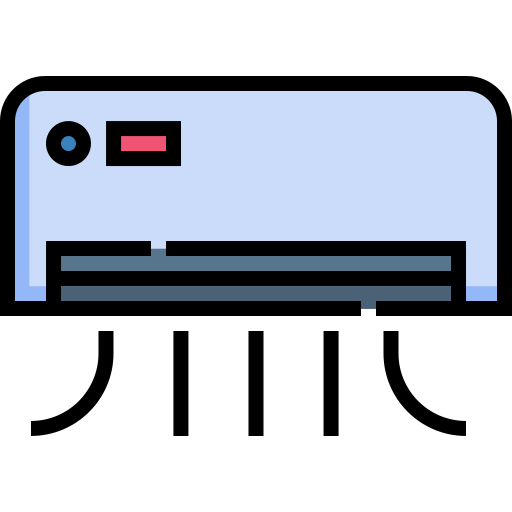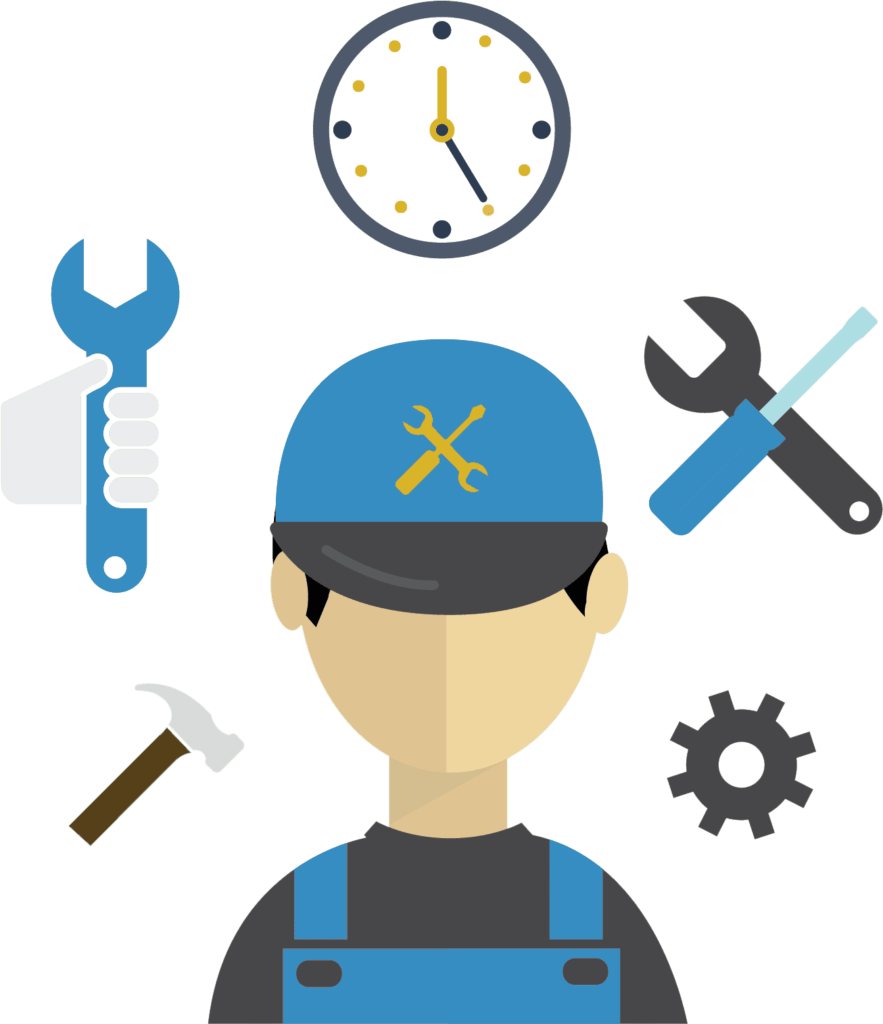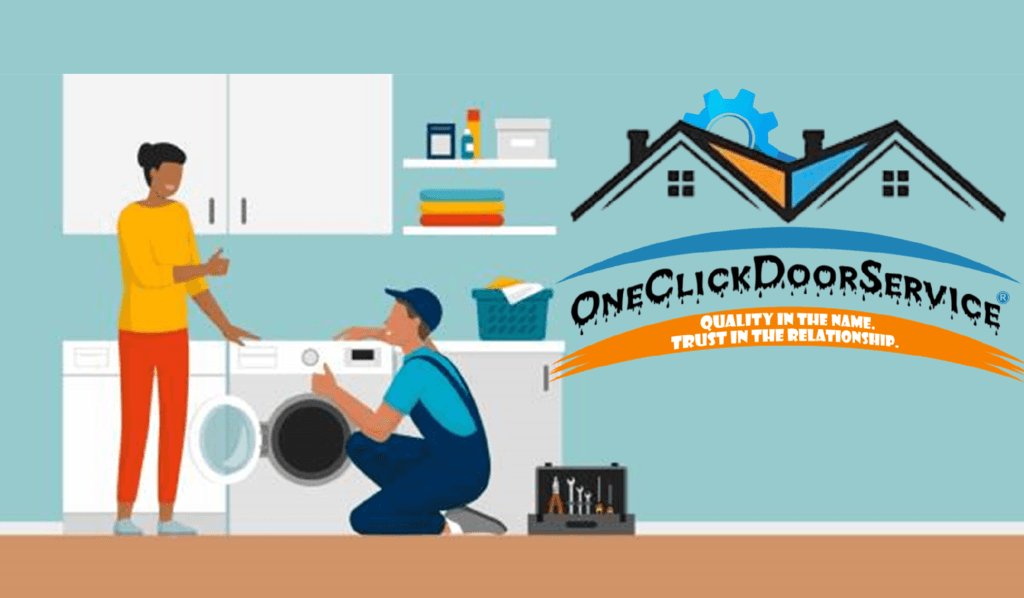ONECLICKDOORSERVICE, HERE WE BELIEVE THAT CONNECTING PEOPLE IS OUR FIRST PRIORITY.
We Offer A Wide Range Of Services Such as
Installation And Repair Services Of
Air Conditioning.
Washing Machine.
Refrigerator / Fridge.
Trusted Rating (5/5)
5/5

Click Here to Know More.
Washing Machine
Installation / Repair / Service
ALL TYPES OF WASHING MACHINE ARE REPAIRED AND SERVICED HERE
Refrigerator /Fridge
Installation / Repair / Service
ALL TYPES OF REFRIGERATOR / FRIDGE ARE REPAIRED AND SERVICED HERE
Air Conditioner / AC Installation / Repair / Service
ALL TYPES OF AIR CONDITIONER / AC ARE REPAIRED AND SERVICED HERE
Personal Assistance
FEEL FREE TO SHARE YOUR PROBLEM,
WE ARE HERE TO HELP YOU.
Number Speaks
Number of Repairs
0
Number of Installations
0
Happy satisfied customers
0
OneClickDoorService's certified technicians are available 24/7 for quality repairs at your convenience.
At OneClickDoorservice, we believe that no woman should have to struggle with her washing machine, FRIdge or air conditioner.
Address:
Hubli - Dharwad.
Email:
support@oneclickdoorservice.com
Expert AC, Washing Machine & Refrigerator PCB Repair in Hubli |
Fast & Reliable Service
FAQs
Frequently Asked Questions on WAshing machine
Washing machine repair near me
A: Some signs that your washing machine may need to be repaired include excessive noise or vibration during operation, failure to drain properly, leaks, or failure to complete a cycle. If you notice any of these issues, it may be time to call a repair technician.
A: It is possible to repair some minor issues with your washing machine yourself, such as unclogging the drain or replacing a broken belt. However, for more complex issues, it is usually best to call a professional technician to ensure the repair is done correctly and safely.
A: The cost of washing machine repair can vary widely depending on the type and extent of the damage. Minor repairs may cost as little as $50, while major repairs could cost hundreds or even thousands of dollars. It's best to get an estimate from a repair technician before committing to a repair.
A: The length of time it takes to repair a washing machine can vary depending on the extent of the damage and the availability of parts. Minor repairs may only take a few hours, while major repairs could take several days or even a week or more.
A: It depends on the extent of the damage and the age of the washing machine. If the repair is minor and the machine is relatively new, it may be more cost-effective to repair it. However, if the machine is older and the repair is major, it may make more sense to replace it with a newer, more efficient model.
A: Regular maintenance can help prevent your washing machine from breaking down. This includes cleaning the lint filter, checking for leaks, and not overloading the machine. It's also important to use the machine according to the manufacturer's instructions and to avoid using harsh chemicals or abrasive materials that could damage the machine.
A: If your washing machine won't start, check to make sure it's plugged in and the circuit breaker hasn't tripped. If that's not the issue, it may be a problem with the door latch, the timer, or the electronic control board. In these cases, it's best to call a repair technician.
A: Loud noises during operation can be caused by a number of issues, such as a damaged drum bearing, a worn belt, or loose parts. If you notice a loud noise, it's best to call a repair technician to diagnose and fix the issue.
A: If your washing machine is leaking, turn off the water supply and unplug the machine. Check to see if there are any visible cracks or damage to the hoses, and tighten any loose connections. If you can't identify the source of the leak, call a repair technician.
A: If your washing machine isn't draining properly, check to see if there is a clog in the drain hose or pump. You can also try cleaning the filter or checking for any visible damage to the pump. If you can't identify the issue, call a repair technician.
A: Yes, hard water can cause mineral buildup in your washing machine, which can damage the machine and reduce its lifespan. To prevent this, use a water softener or descaler, and regularly clean your machine according to the manufacturer's instructions.
A: No, it is not safe to use a washing machine with a cracked drum. A cracked drum can cause leaks, damage to the machine, and even injury to the user. If you notice a cracked drum, it's important to call a repair technician to have it replaced.
A: Excessive shaking during the spin cycle can be caused by an unbalanced load, a worn suspension or shock absorber, or a damaged drum bearing. Try redistributing the load or reducing the load size to see if that helps. If not, it may be necessary to call a repair technician.
A: An unpleasant odor from your washing machine can be caused by bacteria, mold, or mildew growth. This can happen if you regularly use cold water, use too much detergent, or leave wet clothes in the machine for too long. To get rid of the odor, run a hot cycle with no clothes and use a washing machine cleaner or a solution of vinegar and baking soda.
A: Yes, bleach can be used to clean your washing machine. However, it should only be used sparingly and according to the manufacturer's instructions. Too much bleach can damage the machine or cause it to produce an unpleasant odor.
A: It's recommended to clean your washing machine at least once every three months, or more often if you notice any issues such as odor or build-up. Regular cleaning can help prolong the life of your machine and keep it functioning properly.
A: If your washing machine is not filling with water, it could be due to a clogged or faulty inlet valve, a malfunctioning water level sensor, or a kinked or clogged hose. Try checking these components and cleaning or replacing them if necessary. If the issue persists, it may be necessary to call a repair technician.
A: If your washing machine is not spinning, it could be due to a number of issues such as a broken belt, a malfunctioning motor, or a faulty lid switch. Try checking these components and replacing them if necessary. If the issue persists, it may be necessary to call a repair technician.
Frequently Asked Questions on refrigerator / Fridge
Refrigerator Repair Service near me
A: If your refrigerator isn't cooling properly, check to make sure the temperature settings are correct and the vents are not blocked. You should also check the condenser coils and clean them if they are dirty. If the issue persists, it may be a problem with the thermostat, compressor, or refrigerant, and you should call a repair technician.
A: Strange noises from your refrigerator can be caused by a number of issues, such as a malfunctioning fan, a faulty compressor, or a clogged defrost drain. If you notice any strange noises, it's best to call a repair technician to diagnose and fix the issue.
A: If your refrigerator is leaking water, check to make sure the water supply line and connections are not damaged or clogged. You should also check the defrost drain and make sure it is not clogged. If you can't identify the issue, call a repair technician.
A: An unpleasant odor from your refrigerator can be caused by bacteria or mold growth, spoiled food, or a dirty condenser coil. To get rid of the odor, clean the interior of the refrigerator, throw away any spoiled food, and clean the condenser coil if necessary.
A: If your refrigerator is freezing food, check to make sure the temperature settings are not too low and the vents are not blocked. It may also be a problem with the thermostat or temperature sensor, and you should call a repair technician to diagnose and fix the issue.
A: It's recommended to clean your refrigerator at least once every three months. This includes wiping down the interior and exterior surfaces, cleaning the condenser coil, and throwing away any expired or spoiled food.
A: If your refrigerator is not running at all, check to make sure it's plugged in and the circuit breaker hasn't tripped. You should also check the temperature control and make sure it's set correctly. If none of these are the issue, it may be a problem with the compressor or other internal components, and you should call a repair technician.
A: Condensation on the inside of your refrigerator can be caused by a number of issues, such as a faulty door seal, a blocked air vent, or a malfunctioning defrost system. Check to make sure the door seal is tight and not damaged, and that the air vents are not blocked by food or other items. If the issue persists, call a repair technician to diagnose and fix the problem.
A: If your refrigerator is running constantly, check to make sure the temperature settings are not set too low, and the door seal is not damaged. It may also be a problem with the condenser coils being dirty, or a malfunctioning thermostat or temperature sensor. Call a repair technician to diagnose and fix the issue.
A: If your refrigerator's ice maker is not working, check to make sure the water supply line is not blocked or damaged, and the ice maker is turned on. It may also be a problem with the water inlet valve, a clogged water filter, or a faulty ice maker motor. Call a repair technician to diagnose and fix the issue.
A: If your refrigerator is not dispensing water, check to make sure the water supply line is not blocked or damaged, and the water filter is not clogged. It may also be a problem with the water inlet valve or a faulty dispenser switch. Call a repair technician to diagnose and fix the issue.
A: Some minor issues, such as cleaning the coils or replacing a light bulb, can be done by the homeowner. However, most refrigeration repairs require specialized knowledge and tools, and should be performed by a qualified repair technician. Attempting to repair your refrigerator without the necessary expertise can be dangerous and may cause more damage.
A: It's recommended to replace the water filter in your refrigerator every six months or as directed by the manufacturer. This ensures that the water being dispensed is clean and free from contaminants.
A: A buildup of frost in your freezer can be caused by a number of issues, such as a malfunctioning defrost system, a faulty door seal, or a blocked air vent. Check to make sure the door seal is tight and not damaged, and that the air vents are not blocked by food or other items. If the issue persists, call a repair technician to diagnose and fix the problem.
A: Fluctuating temperatures in your refrigerator can be caused by a number of issues, such as a malfunctioning thermostat or temperature sensor, a faulty door seal, or a blocked air vent. Check to make sure the door seal is tight and not damaged, and that the air vents are not blocked by food or other items. If the issue persists, call a repair technician to diagnose and fix the problem.
A: You can prevent your refrigerator from developing issues by performing regular maintenance, such as cleaning the condenser coils, checking and replacing the water filter, and making sure the door seals are tight and not damaged. You should also avoid overloading the refrigerator and keeping it at the recommended temperature settings.
A: The lifespan of a refrigerator can vary depending on the make and model, but on average, a refrigerator can last between 10-15 years with proper maintenance and care.
Frequently Asked Questions on AC / Air Conditioner
AC Repair Service near me
A: You should call for AC repair service if you notice any of the following signs:
- Your AC is making strange noises.
- Your AC is blowing warm air instead of cool air.
- Your AC is leaking water.
- Your AC is emitting strange odors.
- Your AC is not turning on at all.
A: The cost of AC repair service depends on several factors, including the type of repair needed, the age and condition of your AC unit, and the cost of replacement parts. On average, AC repair service can cost anywhere from Rs.800 to Rs.1000 or more.
A: The length of time it takes to complete AC repair service depends on the type of repair needed and the availability of replacement parts. Some repairs can be completed in as little as an hour, while others may take several hours or even a full day.
A: It is not recommended that you perform AC repair service yourself unless you are a trained and licensed HVAC technician. Attempting to repair your AC unit yourself can be dangerous and may result in further damage to your unit.
A:It is recommended that you have your AC unit serviced at least once a year, preferably in the spring before the cooling season begins. Regular maintenance can help prevent the need for repairs and can help your AC unit operate more efficiently.
A: Here are some tips to prevent AC problems:
- Change your air filters regularly.
- Keep your outdoor unit free of debris.
- Make sure your indoor and outdoor units are free of dust and dirt.
- Schedule regular maintenance service for your AC unit.
- Use a programmable thermostat to help regulate your home's temperature.
A:You can reach our customer support team by email at oneclickdoorservice@gmail.com or by phone at +91 7975782561.
Our hours of operation are all days of the week, 9am to 11pm.
A:When choosing an AC repair service provider, look for a company that is licensed and insured, has a good reputation, offers transparent pricing, and provides a warranty on their work. You can also ask for recommendations from friends and family, or check online reviews to find a reputable provider.
A: A lack of cold air coming from your AC could be caused by a number of issues, such as a clogged air filter, a refrigerant leak, a malfunctioning compressor or fan, or a faulty thermostat. Check to make sure the air filter is clean and not clogged, and that the thermostat is set correctly. If the issue persists, call a repair technician to diagnose and fix the problem.
A: Strange noises coming from your AC could be caused by a number of issues, such as loose parts, worn-out belts, or a malfunctioning compressor or fan. Turn off your AC and inspect the unit for any visible damage or loose parts. If you can't find anything obvious, call a repair technician to diagnose and fix the problem.
A:An AC unit freezing up can be caused by a number of issues, such as a clogged air filter, a refrigerant leak, or a malfunctioning blower fan. Check to make sure the air filter is clean and not clogged, and that the refrigerant levels are correct. If the issue persists, call a repair technician to diagnose and fix the problem.
A: It's recommended to have your AC serviced at least once a year, preferably before the start of the cooling season. Regular maintenance can help prevent issues and keep your AC running efficiently.
A: It's not recommended to attempt to repair your AC yourself unless you have the necessary expertise and tools. AC repairs can be dangerous and may cause more damage if not done correctly. It's best to call a licensed and experienced repair technician to diagnose and fix the issue.
A:You can prolong the lifespan of your AC unit by performing regular maintenance, such as cleaning or replacing the air filter, checking and replenishing refrigerant levels, and making sure the unit is not overloaded or overworked. It's also important to have your AC serviced by a professional at least once a year.
Frequently Asked Questions on Microven Repair
Micro Oven Repair near me
A: A microwave not heating food could be caused by a number of issues, such as a malfunctioning magnetron, a faulty high voltage diode, or a malfunctioning transformer. It's best to call a repair technician to diagnose and fix the problem.
A: Sparks inside a microwave can be caused by a number of issues, such as a damaged waveguide cover, a malfunctioning stirrer motor, or a metal object inside the microwave. Turn off the microwave and inspect it for any visible damage or metal objects. If you can't find anything obvious, call a repair technician to diagnose and fix the problem.
A: Strange noises coming from a microwave can be caused by a number of issues, such as a malfunctioning turntable motor, a damaged roller guide, or a malfunctioning fan. Turn off the microwave and inspect it for any visible damage or loose parts. If you can't find anything obvious, call a repair technician to diagnose and fix the problem.
A: It's recommended to have your microwave serviced at least once a year, preferably before the start of heavy use. Regular maintenance can help prevent issues and keep your microwave running efficiently
A: It's not recommended to attempt to repair your microwave yourself unless you have the necessary expertise and tools. Microwaves contain high-voltage components that can be dangerous and may cause more damage if not handled properly. It's best to call a licensed and experienced repair technician to diagnose and fix the issue.
A: You can prolong the lifespan of your microwave by performing regular maintenance, such as cleaning the interior and exterior, wiping down the door seals, and making sure the unit is not overloaded or overworked. It's also important to have your microwave serviced by a professional at least once a year.
A: A microwave not turning on could be caused by a number of issues, such as a faulty door switch, a blown fuse, or a malfunctioning control board. Check the power source and ensure the microwave is properly plugged in. If the issue persists, call a repair technician to diagnose and fix the problem.
A: An error code displayed on a microwave could be caused by a number of issues, such as a malfunctioning control board, a faulty sensor, or a damaged door switch. Consult the user manual for the specific error code and troubleshooting steps, or call a repair technician to diagnose and fix the problem.
A: A burning smell coming from a microwave could be caused by a number of issues, such as burnt food or grease on the interior, a damaged waveguide cover, or a malfunctioning motor or fan. Turn off the microwave and inspect it for any visible damage or burnt food or grease. If you can't find anything obvious, call a repair technician to diagnose and fix the problem.
A: No, it's not safe to use a microwave to heat metal objects. Microwaves are designed to heat food by exciting water molecules, and metal objects can cause a dangerous electrical current to form, which could damage the microwave or cause a fire.
A: The lifespan of a microwave can vary depending on the usage and maintenance. On average, a microwave can last 5-10 years with proper maintenance and care.
A: A microwave turntable not rotating could be caused by a number of issues, such as a malfunctioning turntable motor, a damaged roller guide, or a faulty coupler. Check to make sure the turntable is properly aligned and not obstructed by any objects. If the issue persists, call a repair technician to diagnose and fix the problem.
A: No, it's not safe to use a microwave if the door is damaged. The door is an important safety feature of the microwave, and a damaged door could lead to radiation leakage or other safety hazards. Call a repair technician to replace the door or assess if the microwave can be repaired.
A: To clean the interior of a microwave, wipe down the walls, ceiling, and turntable with a damp cloth or sponge. For tough stains or odors, you can use a solution of equal parts water and vinegar or a commercial microwave cleaner. Make sure to wipe down the door and door seals as well. To clean the exterior, use a mild cleaner and a soft cloth.
A: It depends on the type of plastic container. Some plastics are safe to use in the microwave, while others can release harmful chemicals or melt. Look for microwave-safe symbols on the container or consult the manufacturer's instructions. Alternatively, use glass or ceramic containers in the microwave.
A: A microwave tripping the circuit breaker could be caused by an overloaded circuit, a faulty outlet, or a malfunctioning microwave. Try plugging the microwave into a different outlet or unplugging other appliances on the same circuit. If the issue persists, call a repair technician to diagnose and fix the problem.

